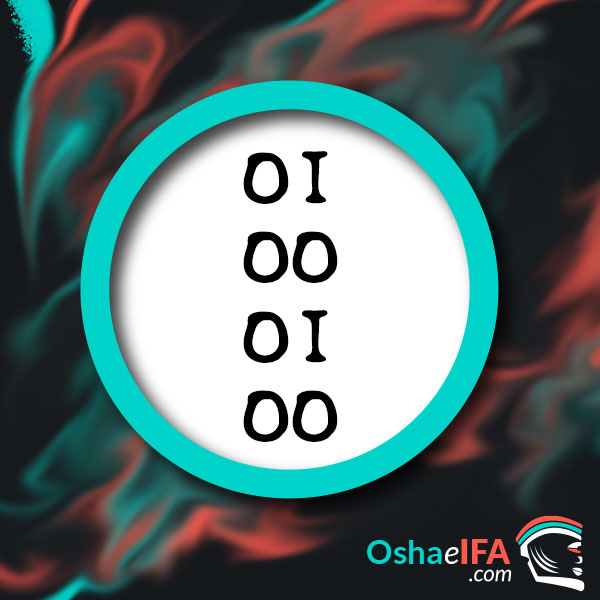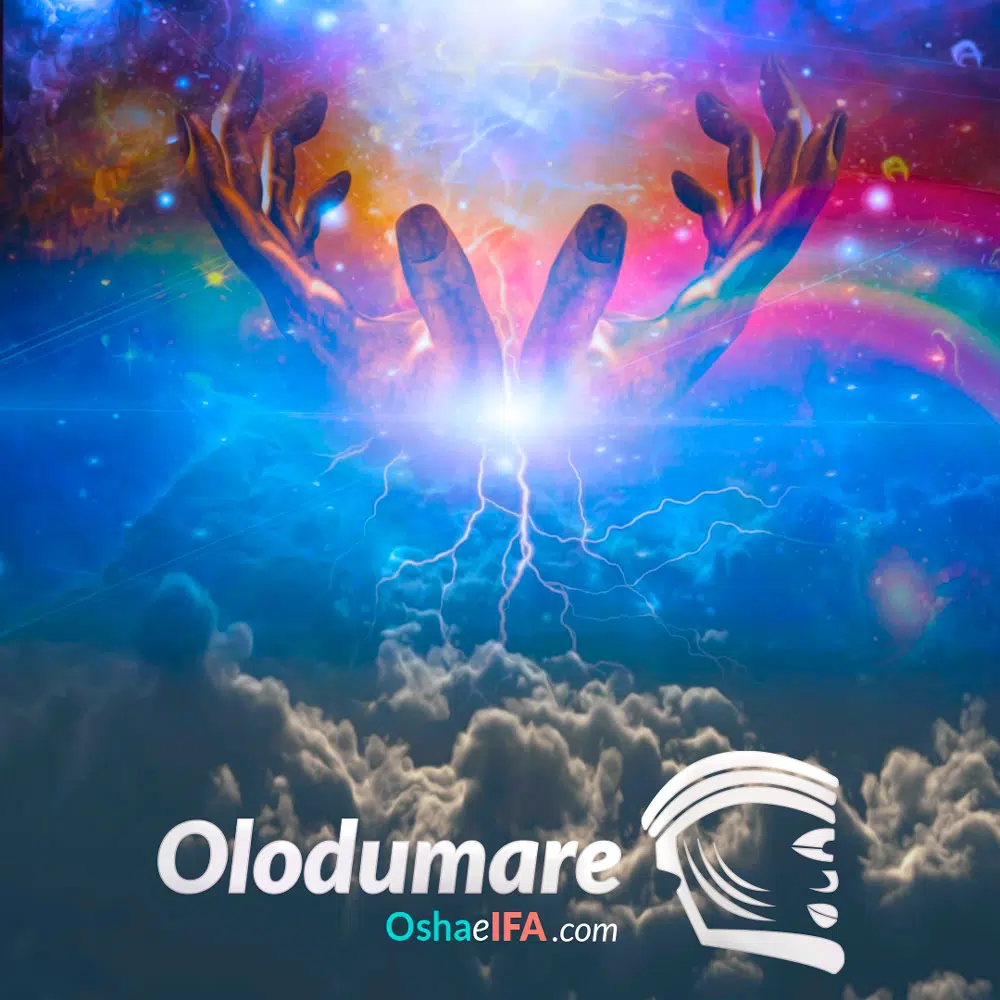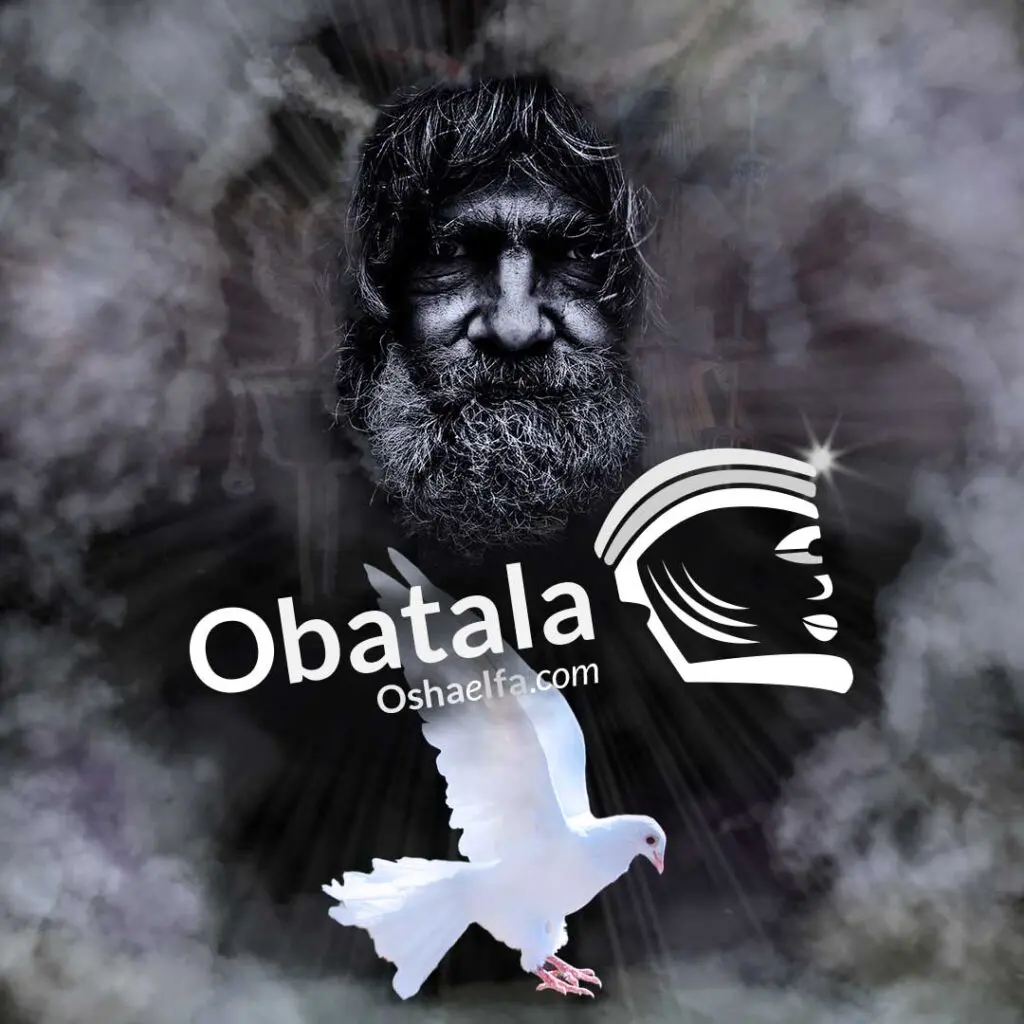Oshe Yekun (Òsé Òyèkú)

Oshe Yekun, is the sign number 228 in the Genealogical Order of Ifá, it is also known as "the Ifá of the flies". This Odu teaches us a valuable lesson about persistence and omnipresence, qualities inherent to the fly, which despite its size, has the ability to thrive in almost any environment. When manifested in divination, it indicates a favorable period to start new projects or businesses, underlining the importance of sacrifices and dedication to achieve the desired success.
Interpretation and Analysis of the Oshe Yekun Sign
Oshe Yekun, an Ifá sign that often predicts good fortune, emphasizes the importance of sacrifice and Orunmila's guidance to overcome conflicts on both the physical and spiritual planes. This Odu points out that although the path to success is marked by adversity, with proper guidance and prescribed sacrifices, these difficulties can be overcome.
When Oshe Oyekun is revealed in a divination, it is recommended that the person make sacrifices to ensure a long and prosperous life. Although his intentions and questions directed to Orunmila may seem adequately aligned, it is essential to make offerings and rituals that foster an environment suitable for his well-being.
This Odu advises caution in social interactions, suggesting avoiding crowds and preferring the company of a small number of people. Such an approach helps prevent negative influences and protect the individual's own energy space.
Òsé Òyèkú also indicates the need to receive the blessings and protections of specific deities such as Ozayín, Orishá Oko, Olókun and Azojuáno. For men who have this Odu in their Orula's Hand, it is recommended to start Ifá to deepen your connection and spiritual protection.
This sign warns that the person may experience confusional syndrome and face danger if not handled with care and solitude in critical moments. Although enemies persist in their attempts to harm through witchcraft, divine protection ensures that in the end, these adversaries will surrender at their feet.
Economic Aspects:
Oshe Yekun reveals to us that misery and need often go hand in hand, presenting challenges that are both tests of character and opportunities to strengthen the spirit. This Odu exhorts us to face these trials with dignity and perseverance. In economic terms, the importance of prudence and responsible management of resources is emphasized. He warns of the dangers of greed and promotes the pursuit of prosperity through honest and painstaking efforts, emphasizing that true progress is achieved through integrity and constant labor.
This odu says that there are blessings to be able to break all the difficulties, until today his projects have been carried out and they have not materialized, but from the moment in which the recommended ebbo is carried out, things will work out for him.
Personal relationships:
Oshe Yekun highlights the importance of loyalty and integrity in personal relationships, emphasizing that they must be based on mutual trust and respect. This Odu warns that betrayal can have devastating consequences, often triggering the severing of significant ties. Furthermore, he suggests that our actions have a direct impact on our immediate environment and that improper management of relationships can lead to severe conflicts, even with brothers by blood and religion.
According to this Odu, internal problems can cause a person to leave their home. However, it also offers hope to those seeking happiness as a couple, promising to overcome obstacles through appropriate sacrifices and careful filtering of negative influences, warning about the presence of false friends who try to damage the relationship through gossip and intrigue.
Religious Aspects:
Oshe Yekun stands out for its deep spiritual connection, emphasizing the importance of rituals and offerings that strengthen the links between the living and the spirits. This Odu highlights the veneration of the dead and respect for esoteric traditions, which not only link humanity to the divine, but also allow for a deeper understanding of the cycles of life and death. Interaction with deities such as Yemayá and Obatalá is essential, through rituals that include floral offerings to the deceased, considered essential to maintain spiritual harmony.
Additionally, the practice of covering the Eggún (ancestral spirits) with flowers to protect them from discomfort is revealed, while Elegua is offered Shekete to soften the character and encourage love and acceptance in the community. It is also recommended to make offerings of eya tuto (fresh fish) to the leri (head), promoting mental clarity and spiritual well-being. Mastered by Agayu, this Odu encourages his followers to embrace strength and resilience in their religious practices.
General Description of Odu Oshe Òyèkún
Names or Aliases:
- Oshe Yekun.
- Oshe Oyekun.
- Oshe Yeku.
- Òsé Òyèkú.
What is born in Oshe Yekun?
- Misery and Necessity in life.
- The tripartite pact between Oshe Yekun, Oyekun Pakioshe and Ikú, who would always respect the perfume.
- The first flower pot that was put to death.
- Why are floral offerings placed on the dead?
- That each Saint has his Osayin of foundation.
- He dies from walking in groups.
- Oluwó Popó created the fly and with it cancer.
This sign indicates:
- The person goes crazy for sent spirits and they destroy the others.
- Oshe Yeku is the foreman of the Oba Egun of Ara Onu.
- Elegua gives clothes and money.
- By intori arun (disease) he speaks of tuberculosis.
- Obatalá gives things little by little.
- It was where the Babalawo who only had Ifá had to wash the Saints so that they would accompany him.
- Ituto is prepared for a living person.
- The herbs are: Salvadera, Malva and Abrojo.
What does Oshe Oyekun talk about?
- Oshe Yekun is the foreman of the Oba Eggun in Ara Onu. It must be written in Oparaldo's office.
- Ifa ni maferefun Yemaya.
- This was where the Bokonos (The Babalawos in Arará land) who did not have Osha, had to wash them to accompany them.
- You have to obori and ebo misi mera with ewe from Yemaya.
- You must receive Orishaoko or Olokun, Ozain and Azojuano.
Recommendations:
- Respect rituals and offerings, especially with flowers for the dead and perfumes, to maintain a good relationship with the spiritual world.
- Perform cleansing and protection sacrifices, such as bathing with Yemayá herbs and using coconut and güiro shells with small stones next to Obatalá and Eshu.
- Avoid crowds and walk alone, to protect yourself from negative influences and possible dangers.
- Receive specific initiations and deities such as Osanyin, Orishaoko, Olokun, and Azojuano to strengthen the spiritual and personal connection.
- Give Eja Tuto (fresh fish) to the head, to cleanse and refresh the mind and spirit.
- Use the guabina peel (Eja-Oro) to protect against death and other spiritual evils.
- Maintain upright conduct and avoid betrayal, especially in relationships, as this Odu warns against the consequences of disloyalty.
Prohibitions:
- Do not walk in groups, to avoid unnecessary conflicts and dangers that may arise from bad influences or misunderstandings.
- Avoid the use of perfume in certain ritual practices, thus respecting the ancestral pact on its sacred use.
- Do not pursue or take what is not your own, to avoid embarrassment and legal or spiritual problems.
- Beware of enemies and avoid betrayal, since this Odu indicates that betrayal can come even from those close to us.
- Do not provide shelter or do favors without discernment, to protect yourself from people who may have bad intentions or bring serious problems to your personal life.
- Be careful with complicated love relationships, as in the case of men who must be wary of a lover's husband, and women who must be cautious with committed or dishonest men.
You may also like: All about the Odu Oshe Meyi
Oshe Yekun Sayings:

- Don't leave the true for the doubtful.
- Misery and want will always exist on Earth.
- They pay just for sinners.
- Give the reason to whoever is right.
- King fly, he is king.
- Ten kings, ten eras.
- Money brings out tragedy between family.
- The earth is known by the mud; and the sky for the moon.
- The offended brother is more tenacious than a strong city; and the quarrels of the brothers are like the bolts of a fortress.
- Have the advice, don't let it; save it, because that's your life.
"King fly, he is king" reflects how context and proximity to authority elevate an individual's position. This saying suggests that even those of lower rank can gain influence and respect by associating with figures of power, highlighting the importance of alliances and environment.
Ethical code:
- Even kings need to be confirmed by other kings.
Meaning of the Oshe Yekun sign (5-2):
- Oshe Yeku leads 36 righteous spirits, representatives of Olodumare. This Odu indicates that the person can become tied to the place he goes. This Ifá describes forgetful, non-compliant, unmotivated and lazy individuals.
- For men, it is warned to be careful with the lover's husband, who could kill them. Women must show devotion to the Saints; If they are not married and the man has another wife, they must take special care of their health. A strong emotional impact could cause them to lose consciousness.
- One should not take what does not belong to one, as this can lead to embarrassing situations.
- It is necessary to receive Orishaoko and Olokun.
- Saint Lazarus and Ozain made a pact to share their knowledge, but Ozain betrayed Saint Lazarus. Oluwo Popo created cancer and spread an epidemic in response to betrayal.
- The ejá oro (the guabina) scares away Iku.
- In this Oddun, Iku lost control of the world, and Olofin, by repressing and shaming him, caused Iku to go mad; However, he was calmed by the power of the flowers.
- In Oshe Yekun, death was celebrated by receiving the first offering of flowers used in the world. The person affected by this sign may frequently find themselves in communication with spirits and experience transitions to spiritual states.
Treaty and characteristics of the odu Oshe Yekun:
Oshe Yekun, known as the foreman of all the Obá in Ara-Onu (Heaven), is an Oddun that stands out for offering prosperity and popularity, keeping the person's daily life in constant movement. This Odu is venerated as "Oshe Yeku Adifafún Lashure", an honor granted by Yemayá, the queen of rain, who entrusted him with water to bless the Earth with rain.
This sign is also recognized for signaling the arrival of catalepsy or a state preliminary to death, a period of great spiritual significance. He is widely known for his link with Yemayá, as indicated by the greeting "Ifá ni Kaferefún Yemayá."
The specific herbs associated with this Oddun are Salvadera, Malva and Abrojo, used in various rituals and offerings. Eshu is presented with shekete, an offering to request his help in character transformation and fostering the individual's social acceptance.
This Odu is governed by Agayu and stands out for the ritual of applying ejá tútu (fresh fish) on the head, an act of purification and blessing. During this Oddun, the Awós of the Dahomeyan land or Arará, who originally did not have Saints, were required to wash them so that they could accompany them and facilitate their work with them.
Oshe Oyeku also introduces the tradition that each Saint, upon arriving on Earth, will possess his Osanyin of foundation, a spiritual entity that accompanies him. The practice of praying the head and taking three baths with Yemayá herbs is essential for spiritual and physical cleansing.
This sign teaches the importance of honoring the deceased through floral offerings and respecting everything related to perfumes. People ruled by this sign should sleep with a black cloth that bears the Odus Oshe Yeku and Oyeku Oshe for protection and spiritual connection.
A particular warning of this Oddun is the need to take care of spiritual garments to avoid fatal consequences. Additionally, the act of throwing three pieces of water into the street is a practice to disperse or ward off negative energies.
Finally, Oshe Yekun narrates how Azojuano defeated his enemies, a reminder of the ability to overcome and win over adversity that this powerful Oddun offers.
You may also like: Oddun Treaty of Ifa Oyekun Pakioshe
Ifa says in the odu Oshe Yekun
- Thank Yemayá for her support and if you have debts with her, pay them off.
- Perform Ebo to face difficulties and avoid future problems.
- Take good care of visitors, as they bring good luck.
- Listen and follow the guidance you receive to ensure success.
- Keep your house clean to avoid illness; use meat and sandbox in spiritual cleansing.
- Make Ebomisi with flowers to purify your surroundings.
- Secure and secure your own home if you don't already have it.
- Maintain discretion about your religious and personal affairs.
- Pay attention to your health, especially your lungs to prevent diseases such as tuberculosis.
- Avoid coveting money and handling it with greed.
- Don't get involved in love triangles or situations that could lead to serious conflicts.
- Refrain from killing flies, as they have a symbolic connotation in this Odu.
- Do not consume food in places of questionable hygiene or late meals.
- Avoid unclean places and maintain a high degree of personal cleanliness.
- Do not enter residences or houses without knowing their origin or history.
- Be careful not to get into disputes or quarrelsome attitudes that could cause conflicts with others.
- Avoid relationships with Palo practitioners, especially if they are people with bad intentions.
- Be careful with attitudes that can negatively affect your siblings or loved ones.
- Do not claim titles or positions of power without well-deserved recognition and confirmation from higher authorities.
Prayer of the Odu Oshe yekun:
Oshe Yeku Boro Boshe Yeku, Ibai Bororo Ofo, Ibai Bororo Ona, Obaye Be Ifa Oshe Yeku, Bawaye Be Ifa Yoyo Odara Moloni Molorun Elegba, Oshe Boro Boshe, Bari Bari Boshe Yeku, Boro Boro Awayoni Ifa, Wawayeni Odara Ifa, Wawayeni Ifa Odara , Wawore Oshe Yeku, Bari Boshe Orunmila, Beyeku Mawayoni Ifa, Boro Boro Eni Boye Shango, Eni Boye Iku.
Eggún Prayer for Ebbó:
Oshé Yekú Orun Egun Lode Iku Lo Oshé Yekú Yanzan Mowayo Oduduwa Oyo Kushe Yeye LodaLeri Awo Orun Egun Iba Orun Ebo Kayebu Ebo Iku.
Suyere by Oshe Oyekun
BORO BORO BOSHE YEBI CANVAS, BORO BORO BOSHE YEBI CANVAS
AWA BORO BORO AWA IKU.
Works (ebo) by Oshe Yekun
Ebbó to Win Conflicts: For this work, you will need soil from anthill and termite nest, as well as 9 flies and other winged insects. All the ingredients must be burned until they turn into ashes, mixed with the already sifted earth. This powder will be prayed on the board and placed on an AJARA (corn rosette). Finally, it is blown in the place where you want to obtain victory in the conflict.
Work to Defeat an Enemy (Oshe Oyekun 5-2): For this work a chicken (eñí adié) is used, on which the signs of Otura Niko and Oshe Yekun are marked, and prayers are said while the name of the enemy is mentioned. Place the chicken in a glass of water behind the front door and light a candle (atana). When you go outside, ask Eshu to transform the enemy by showing his true nature and learn to respect. When you return, go to sleep. The next day, cleanse with an egg and discard the glass of water on the street to complete the ritual.
Patakies (stories) of the Oshe Yekun sign:
The Giant Spider Test
A man, overwhelmed by poverty, set out in search of his fortune. After a long journey, he arrived at a farm where he requested lodging for one night. The next morning, upon noticing that the land was neglected, he proposed to the owner to cultivate it in exchange for sharing the fruits. The owner accepted his offer.
While exploring the farm, the man, driven by hunger, chased a goat until he reached Orunmila's house. When explaining to Orunmila the reason for his action, he discovered that he had found a place that, if he followed the directions given to him, would bring him success; Otherwise, he would fall from grace.
Continuing on his way, he came across an abandoned castle on a mountain. He decided to enter, fighting against the cobwebs that hindered his passage. Suddenly, he was surprised by two intense lights that left him unconscious.
Coming to his senses, he found himself facing a giant spider that spoke to him without showing hostility. The man explained that he had thought he could sleep there since it seemed empty. The spider accepted, on the condition that he not use the bed or the chair.
The man enjoyed a comfortable stay thanks to the spider's generosity, but one day, tired of sleeping on the floor, he disobeyed and lay down on the bed, becoming trapped in the cobwebs. When the spider found him trapped, she moved forward to devour him. Although he protested that it was not a fly, the spider replied: “Look at you, you are a fly,” and ate him.
Explanation: This patakie teaches the importance of obedience and respect for established limits. Despite receiving hospitality and help, the man failed to follow a simple rule, which ultimately cost him his life. This underlines that, even in times of comfort, we must not forget gratitude and respect for those who help us.
The Peasant and the Enchanted Castle
A peasant, displaced from his homeland due to a war between tribes, arrived in an unknown place looking for a new beginning. There he found a house where they offered him work but he could not sleep inside due to the presence of women in the family. Curious about a small castle nearby, the owner of the house warned him that it was inhabited only by ghosts. Without fear, the farmer decided to explore it.
While working, he saw a goat and followed it to a small house hidden among the trees, where an old man intercepted it. The old man, who turned out to be an Awó (priest), warned him about the danger of his curiosity towards the castle and suggested he perform an Ebó to avoid falling into traps. The peasant accepted, but the next day, driven by curiosity, he went directly to the castle instead of returning to the Awó.
As he knocked on the castle door, it slowly opened with a creak. Shocked and overwhelmed, he fainted, but was assisted by a spider who offered him water. The spider proposed a deal: he could live in the castle as long as he didn't use the furniture she had woven. The peasant accepted and enjoyed his stay, until one day he decided to try the furniture and got caught up in it. When she screamed for help, a fly appeared and reminded her of his new reality, reflecting her transformation into a being like her, which made her remember that he had ignored the Awó's advice.
Explanation: The story emphasizes the importance of following wise advice and not getting carried away by impulsiveness or curiosity without measuring the consequences. The peasant, despite clear warnings, chose to ignore the safe path because of the temptation of the unknown, which ultimately led to his downfall. This patakie reminds us that disobeying wisdom and warnings can have irreversible consequences, transforming our lives in unexpected and often unwanted ways.
You may also like: Ifa Oshe Bara sign
Oshe Yekun Ifa Traditional
ÒI KNOW ÒYÈKÚ
Òsé ló yekú Òwìnnì
A day fún Rèmílékún Onígbò Afonran
Níjó tí n be láàrin òsììrì
Tí n be láàrin òtá sángílítí
Ebo kó segun n wón ní ó se
Òun or níí kú báyìí?
Wón ni ò níí kú
Bó bá ti le rbo
Wón yan ebo fun Rèmílékún
Ó bá rbo
Ó ru òpòlopò owó
Ó ru aso nlá kan
Èmí è bá gùn
hey hey
N ní wá n jó ní n yò
Ní n yin àwon Babaláwo
Àwon Babaláwo n yin Ifá
Ó ní béè làwon Babaláwo tòún wí
Òsé ló yekú Òwìnnì
A day fún Rèmílékún Onígbò Afonran
Níjó tí n be láàrin òsììrì
Tí n be láàrin òtá sángílítí
Rèmílékún tée ló kú
kò kú mó or
gerère
Ma fèwù bá won gbálè
Manage.
Ifá advises this person to make sacrifice for a long life. All your intentions for which you come to consult with Ifá will be fine; but he must offer sacrifice so that he has space, time and an environment conducive to being well. He must dress a large cloth that he possesses for the sacrifice.
It is Òsé who removed the death spell that was on Òwìnnì
He made divination for Rèmílékún Onígbò Afonran
The day he was surrounded by enemies
He was in the midst of his enemies
It's the sacrifice of dominance you were advised to offer
He asked: Will I not die?
They assured him that he would not die prematurely
Whenever he prepares to offer the sacrifice
They prescribed the sacrifice
And he offered the sacrifice
He sacrificed a lot of money
And a large cloth
He lived a long time
And life pleased him
He started dancing and he was happy
He was praising his Babaláwo
And his Babaláwo praised Ifá
He said that his Babaláwo had told the truth
It is Òsé who removed the death spell that was on Òwìnnì
He made divination for Rèmílékún Onígbò Afonran
The day he was surrounded by enemies
He was in the midst of his enemies
The Rèmílékún that you thought was dead
Not dead yet
gerère
Until old age, I will wear flowing garments with them
Manage.
Verse:
The descendant of Òshe yèkú
They advised him to offer sacrifice so that he could live a long time
They assured him that he will not experience wars within his family circle.
And that he would never be arrested for any war
But he must offer a duck
And also place 7 stones in a gourd for Èsù
He was also advised to get another 7 stones
Take them to the market
And he will throw them to the people of the market being far away
AKíodé the descendant of Òseyèkú performed the sacrifice
He brought the sacrifice to Èsù
And life pleased him
And Akíodé won
He then started dancing and was happy
He praised his Babaláwo and his Babaláwo praised Ifa
He said it was exactly what his Babaláwos had said
If one throws a stone in the market in the middle of the crowd
This one will hit a relative
He was the one who consulted for Akíodé
The descendant of Òshe yèkún
They advised him to offer sacrifice so that he could live a long time
He heard about the sacrifice
He made the sacrifice
From now on we will make the Ifá sacrifice
We have slaughtered a duck
So that our misfortunes result or have a successful ending
We sacrifice a duck.


